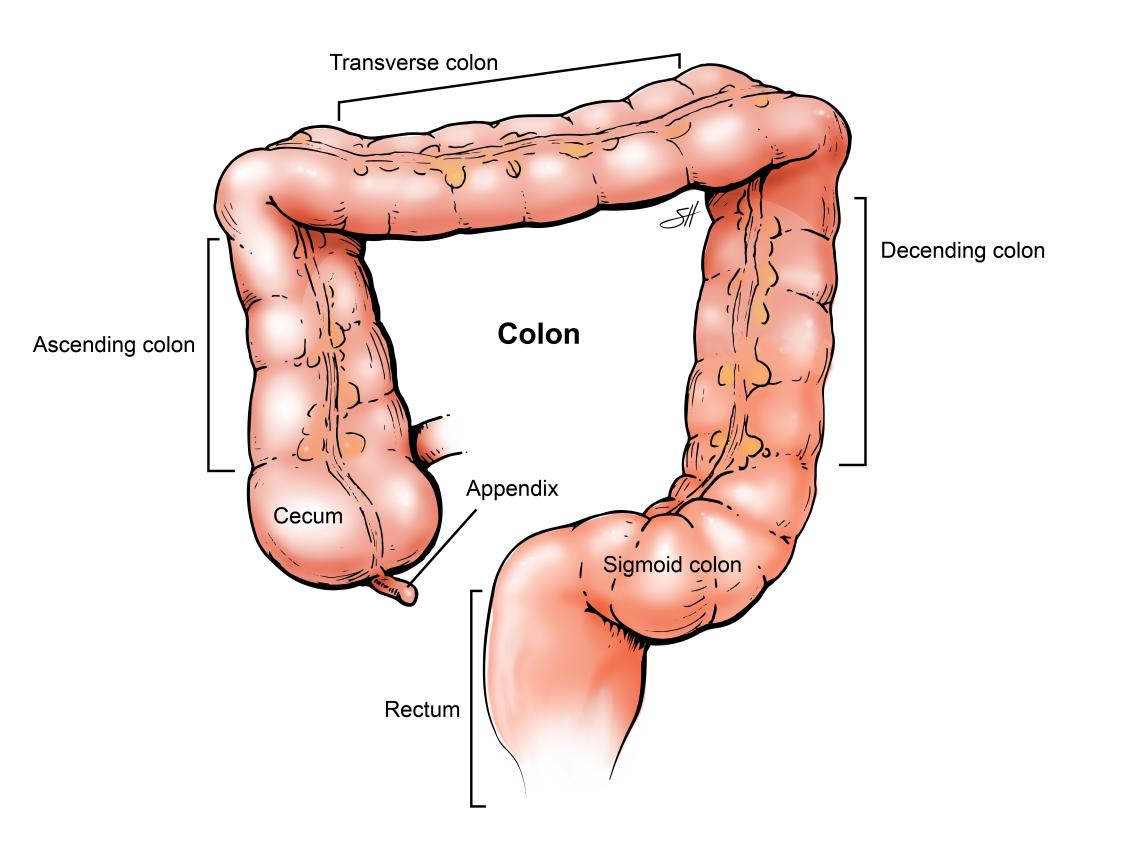What is Colon Cancer?
The colon, also called the large intestine, is a long tube that helps carry digested food to your rectum and out of your body.
Most colon cancers start as a growth called a polyp on the inner lining of the colon or rectum. Some types of polyps can change into cancer over time. The chance of a polyp turning into cancer depends on the type of polyp it is.
Risk Factors
Several factors may increase your risk of developing colon cancer:
- Being overweight or obese
- Diet high in red or processed meats
- Smoking and alcohol use
- Being older than 50 years old
- Personal history of inflammatory bowel disease
- Family history of colorectal cancer or pre-cancerous polyps
- Having an inherited syndrome: FAP or Lynch syndrome
How Does Colon Cancer Spread?
If cancer forms in a polyp, it can grow into the wall of the colon over time. The wall of the colon is made up of four layers. Colon cancer starts in the innermost layer called the mucosa and can grow outward through some or all of the other layers. When cancer cells are in the wall, they can then grow into blood vessels or lymph vessels (tiny channels that carry away waste and fluid). From there, they can travel to nearby lymph nodes or to distant parts of the body. The stage of a colon cancer depends on how deeply it grows into the wall and if it has spread outside the colon.
Types of Colon Cancer
Most colon cancers are adenocarcinomas. These cancers start in cells that make mucus to lubricate the inside of the colon and rectum. Other sub-types of adenocarcinoma are signet ring and mucinous.
How is Colon Cancer Diagnosed?
- Colonoscopy with biopsy
- CT of the chest, abdomen and pelvis
- CEA Assay (blood test): Cancer cells and normal cells release CEA into your bloodstream. High CEA levels may be a sign of colon cancer.
Treatment for Colon Cancer
- Polypectomy: Removal of a cancerous polyp during colonoscopy (if it is small enough).
- Partial colectomy: This is also called colon resection surgery. The surgeon removes the section of your colon that contains a tumor and some surrounding healthy tissue. Then they reconnect the healthy colon sections together.
- Surgical resection with an ostomy: Like a colectomy, the surgeon removes the section of your colon that contains a tumor. If they cannot connect healthy pieces of the colon together or if they need to divert your stool away from the site of the surgery so that it can heal, your surgeon will create an ostomy. With an ostomy, your intestine is moved to an opening in your abdominal wall, so your stool is collected in a bag. This is usually reversible in the future so that you can pass stool normally.
- Chemotherapy: If the colon cancer has spread to lymph nodes or has come back, you may also need chemotherapy. This is typically given after surgery.Targeted therapy: This treatment targets the genes, proteins and tissues that help colon cancer cells grow and multiply. One common type of targeted therapy is monoclonal antibody therapy. This therapy uses lab-created antibodies that attach to specific targets on cancer cells or cells that help cancer cells grow and then kill the cancer cells.
Your healthcare team will carefully evaluate your situation and recommend the most appropriate treatment. They’ll consider factors like your overall health and your specific cancer. If surgery is recommended, you will receive detailed instructions regarding your surgery and recovery.








 Credit
Credit
